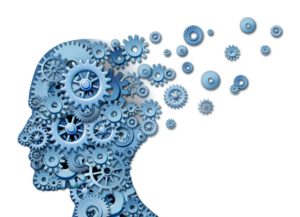 Most people do not know that the reason an addicted patient acts strange (i.e. lying, stealing, secretiveness, poor predictive thinking, poor executive functioning, poor consequential thinking, overly impulsive, reclusive etc.) may be due to opioid-induced brain damage.
Most people do not know that the reason an addicted patient acts strange (i.e. lying, stealing, secretiveness, poor predictive thinking, poor executive functioning, poor consequential thinking, overly impulsive, reclusive etc.) may be due to opioid-induced brain damage.
Did you know this opioid induced brain damage strengthens and expands the impulsivity and reward centers in the brain while decreasing the size and functionality of the executive function part of the brain responsible for predictive thinking and consequential thinking?
Call Us Now For Immediate Help
 OUD (Opioid Use Disorder) is the diagnostic term for a person who is addicted to opioids (including Codeine, Norco, Percocet, Percodan, Oxycodone, Hydrocodone, Morphine, Opana and Heroin just to name a few). As stated above most people do not know that the unlying reason their loved one acts differently is most likely due to opioid induced brain damage.
OUD (Opioid Use Disorder) is the diagnostic term for a person who is addicted to opioids (including Codeine, Norco, Percocet, Percodan, Oxycodone, Hydrocodone, Morphine, Opana and Heroin just to name a few). As stated above most people do not know that the unlying reason their loved one acts differently is most likely due to opioid induced brain damage.
This brain damage can be thought of as similar to a stroke in that once the insulting agent (Opioids) is removed, the damage can be reversed to a great extent. The areas effected by Opioid over use are several but the main 4 are:
-
- First, the “mu” (Opioid) receptors which will have multiplied out of control. The effect of which is, increased tolerance to Opioids, (needing more and more) and severe withdrawal when opioids are not present.
- Second is a resetting of the Dopamine and Serotonin (happiness and pleasure hormones) thresholds, resulting in the patients lack of ability to be happy or stimulated by anything other than the Opioid. (dysphoria).
- Third, the overgrowth of the impulsivity and reward center (limbic) systems of the brain that control the impulse, desire and “acquisition reward” feedback system. This drug use gives the patient positive feedback (dopamine) which reinforces that action so that the patient will want to do it again. So in this case, when an OUD patient takes an opioid, it leads to the impulse for the patient to take even more.
- Lastly, the executive functioning prefrontal cortex shrinks and becomes less effective. This area is responsible for saying no or predicting an outcome or thinking through complex issues of consequences and is why patients make all kinds of bad and irrational decisions that would normally be obviously wrong.
A main point is that patients who have this damage are truly sick and both the patient and their significant others must recognize understand and act upon it accordingly. The patient has very little control over this, as if they were a 2 year old.
Call Us Now For Immediate Help
Is it extremely maddening and frustrating for both patient and significant other?
Yes! Very!
The solution?
Remove the damaging agent (Opioids). Put on the bandage Buprenorphine (Suboxone) and empathetically support the patient personally with tough love and with professional therapy until they can think more clearly (this can take months or years).
Try to remember though that the patient usually cannot recognize that they are not thinking or acting improperly. The patient just knows that if they do not get what they need, they will be extremely sick, which is justifiably terrifying to them. Also try to understand that for most OUD patients, that they are past the point where they get much more than temporary relief from their craving unless they keep increasing the dose and get closer and closer to an unavoidable overdose. The brain damage is evident when a patient will play Russian Roulette with their lives by taking increasing amounts of a substance that will at any moment, kill them even when they are fully aware of the risk.
To help someone find help with an Opioid problem call Brightside clinic 224-205-7866 or for more info go to www.brightsideclinic.com
To learn about helping people with OUD and possibly donate, please call me at 847-989-8996 or go to our brand new 401(c)3 called Help4Hope Addiction Bridgefunding www.help4hopeaddictionbridgefunding.com which helps people who have no money, pay for them to take that big first step until they can stabilize and care for themselves.
Have a topic in mind? Email John!
